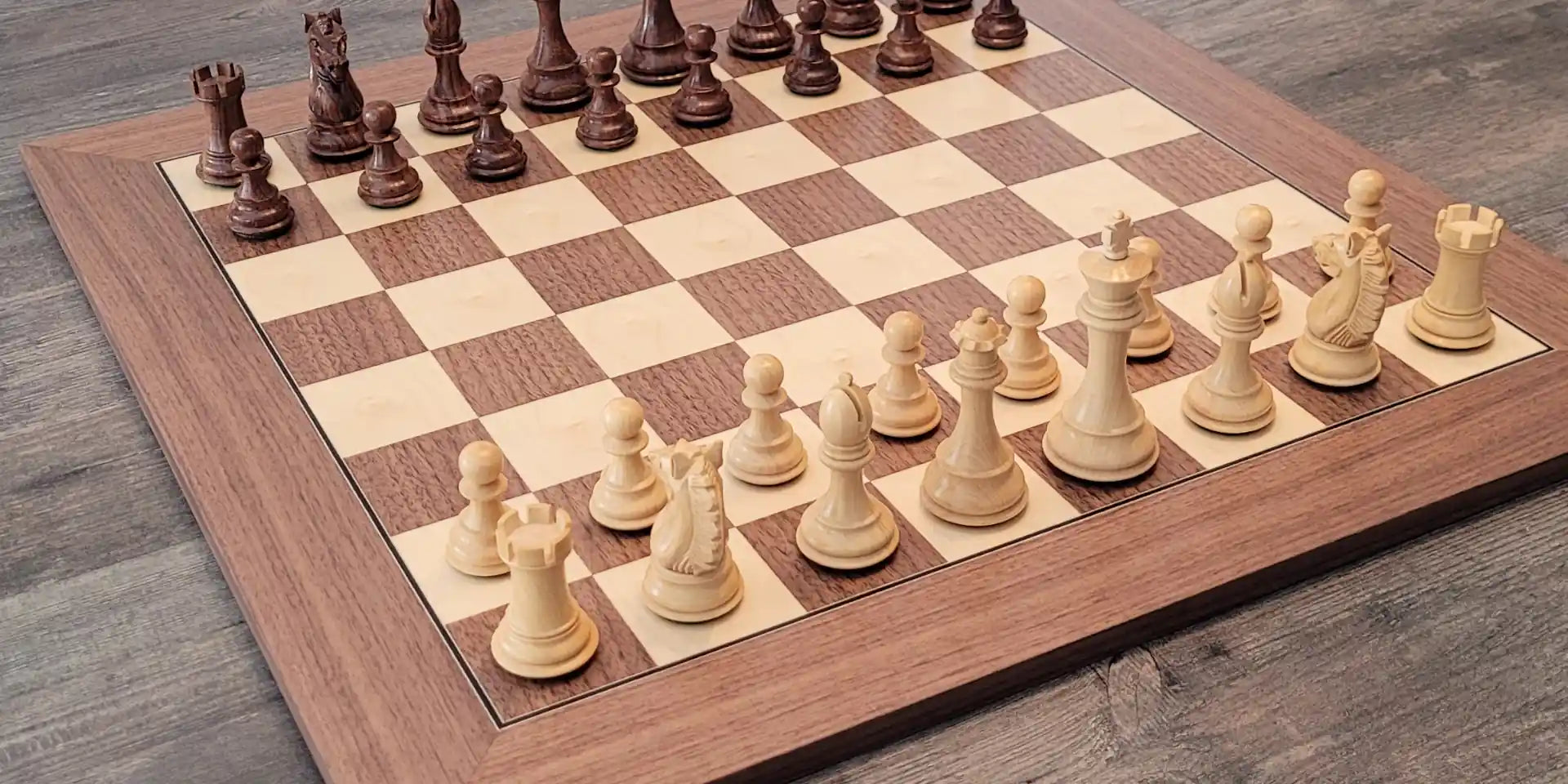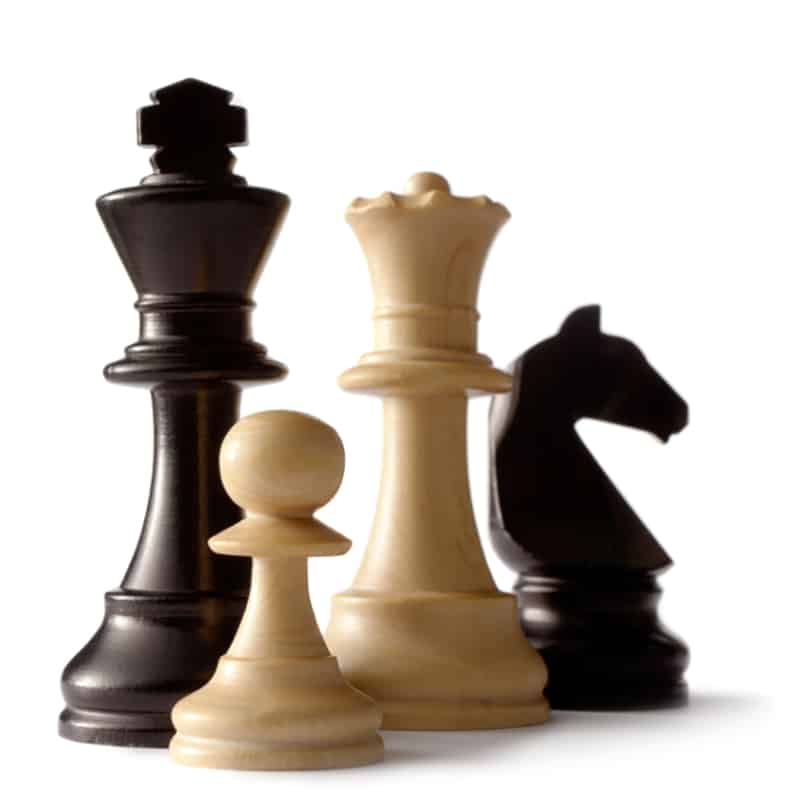Why Chess Remains Influential in Contemporary Culture
Wiki Article
Methods for Chess: Opening the Tricks to Mastering the Game
Chess approaches include a variety of methods essential for success. Recognizing the basics is important for any type of gamer. Each stage of the game-- from openings to endgames-- calls for an unique technique. Understanding these components can result in considerable benefits. However, the journey does not end with standard understanding. There are much deeper layers to explore, exposing the complexities that can truly raise one's game. What exists past the surface area of these basic strategies?Comprehending the Principles of Chess
While several players concentrate on innovative strategies and strategies, comprehending the principles of chess is vital for anyone seeking to boost their game. The foundation of chess begins with the guidelines, which dictate how each piece actions and captures. Knowledge with the board's layout and piece values is essential, as it helps players examine positions and make educated decisions.Additionally, understanding basic ideas such as control of the center, item growth, and king safety and security prepares for efficient gameplay. Players need to discover the significance of maintaining pawn structure and identifying risks, as these aspects can significantly affect the outcome of a match.

Developing a Winning Opening Method
A successful opening approach in chess is vital for developing a beneficial setting early in the game. Gamers often concentrate on crucial concepts such as item development, control of the facility, and king safety. Developing items effectively enables better mobility and tactical possibilities, while occupying the main squares improves influence over the board.Opening approaches can vary substantially, from aggressive lines focused on fast attacks to strong formations that focus on defense and steady development. Knowledge with typical openings, such as the Ruy Lopez or Sicilian Protection, can supply players with an arsenal to draw from and adjust to opponents' actions.
Additionally, preserving adaptability in one's opening approach is vital, as stiff play can cause predictable patterns conveniently exploited by experienced opponents. Eventually, a winning opening method sets the stage for a successful middle game, leading the way for success.
The Relevance of Board Control
Board control works as an essential facet of chess strategy, significantly affecting the outcome of the game. Efficient board control permits a gamer to determine the pace and flow of the match, supplying possibilities for strategic advancement while restricting the challenger's alternatives. By inhabiting vital squares, particularly in the center, players can improve their piece wheelchair and produce more powerful positions.Regulating the board also facilitates far better sychronisation amongst items, enabling tactical mixes and defenses. Chess. This benefit typically equates into boosted pressure on the opponent, resulting in prospective mistakes or miscalculations. Conversely, a lack of board control can leave a player vulnerable, as their items come to be restricted in motion and efficiency
Thus, mastering the art of board control is important, as it lays the foundation for successful maneuvers and long-term strategic preparation, inevitably figuring out the champion in chess.
Strategies and Combinations: Searching For Hidden Opportunities
Discovering strategies and combinations is essential for gaining an advantage in chess, as it allows players to manipulate weak points in their challenger's placement. Tactical recognition includes recognizing my blog patterns such as forks, pins, and skewers, which can bring about material gain or positional advantage. Players must constantly check the board for covert possibilities, assessing potential hazards and responses.Combinations typically entail a series of steps that may originally show up counterintuitive but can culminate in a crucial end result. Chess. Sacrificing a piece to entice an opponent into a trap can shift the check out here game's momentum.
Effective calculation is essential; gamers must imagine several moves in advance to foresee the effects of their actions. Normal practice of tactical challenges can develop this ability. Eventually, mastering methods and mixes encourages players to take control of the game, turning seemingly ordinary settings into winning opportunities.
Endgame Techniques: Securing Your Success
Mastery of techniques and mixes prepares for success, but recognizing how to convert advantages into triumph throughout the endgame is just as vital. In this stage of the game, gamers need to concentrate on item sychronisation and pawn promotion. Comprehending essential concepts such as opposition and controlling vital squares can significantly enhance one's chances of winning.Reliable endgame strategies include simplifying the position when in advance, trading pieces to minimize the opponent's counterplay, and utilizing the king proactively as a battling piece. Gamers need to aim to create passed pawns that can progress towards promotion, forcing the opponent to draw away sources to resist them.
Practicing typical endgame scenarios, such as king and pawn versus king, can give very useful experience. Maintaining persistence and insight throughout the endgame will certainly typically separate the newbie from the master, as decisive minutes can arise all of a sudden.
Evaluating Your Challenger's Relocations
Just how can a player properly anticipate their challenger's strategy? Examining a challenger's relocations is essential for developing an affordable edge in chess. Players need to observe patterns in their challenger's play style, keeping in mind tendencies such as aggressive or protective maneuvers. By recognizing these patterns, a player can anticipate possible reactions and prepare counter-strategies.Furthermore, acknowledging the opening choices can reveal a riches of details concerning an opponent's favored approaches. Gamers need to also evaluate the timing and context of particular relocations, taking a look at the underlying inspirations behind them.
Utilizing methods such as keeping an adaptable frame of mind and adapting to changes in the game can boost a player's ability to respond successfully. Additionally, keeping track of their opponent's clock administration might supply insights into their degree of self-confidence and convenience with the setting. In general, precise observation and evaluation are essential for anticipating and combating an opponent's technique.
Continuous Learning and Renovation in Chess
 his response
his response Continuous understanding is an essential aspect of improving one's chess game, complementing the logical skills created with observing challengers. Players can boost their abilities by researching classic video games, checking out opening theories, and involving with literature on sophisticated techniques. On the internet resources and chess engines supply important devices for analyzing previous video games, allowing players to recognize mistakes and fine-tune their decision-making procedures.
Taking part in events and casual matches is crucial for useful experience, allowing gamers to use new understanding in real-time circumstances. Additionally, joining clubs or on the internet discussion forums fosters a neighborhood setting where players can exchange insights, talk about strategies, and receive constructive feedback.
Routinely examining one's very own video games and those of higher-rated gamers aids light up locations for improvement - Chess. By cultivating a frame of mind of long-lasting learning, chess enthusiasts can continually adapt, develop, and ultimately reach their potential in this intricate and rewarding game
Often Asked Inquiries
What Are the Finest Chess Publications for Beginners?
The ideal chess publications for novices consist of "Chess for Dummies" by James Eade, "The Complete Pinhead's Overview to Chess" by Patrick Wolff, and "Bobby Fischer Instructs Chess." These resources give fundamental techniques and necessary knowledge for new players.How Do I Handle Shedding Touches in Chess?

What Online Platforms Are Best for Exercising Chess?
Popular on-line platforms for practicing chess consist of Chess.com, Lichess.org, and Internet Chess Club. Each deals different features such as challenges, tutorials, and competitive play, providing to various ability levels and choices among chess lovers.
How Can I Enhance My Chess Visualization Skills?
To enhance chess visualization abilities, one ought to exercise mental exercises, resolve problems, evaluate video games without a board, and gradually boost the complexity of settings. Frequently playing blindfold chess can additionally considerably boost visualization capabilities.
What Are Usual Psychological Traps in Chess?
Typical emotional traps in chess include insolence, time stress, and the fear of oversights. Gamers may also succumb to confirmation bias, leading them to overlook better steps while concentrating on previously successful techniques.Report this wiki page